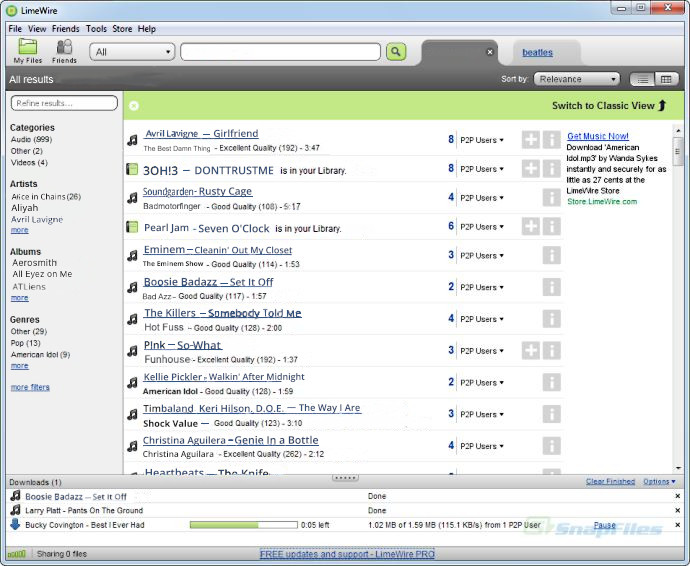Lost Media: LimeWire
LimeWire's journey from innovative file-sharing platform to legal battleground serves as a cautionary tale in the digital age. While it provided users with unprecedented access to files, it also raised complex ethical and legal questions. Ultimately, LimeWire's legacy lies in the lessons learned about copyright infringement, the value of intellectual property, and the ongoing efforts to balance creativity and innovation with legal protections in the digital realm.
What was LimeWire?
In the early 2000s, LimeWire emerged alongside Napster as a groundbreaking peer-to-peer (P2P) file-sharing platform, revolutionizing the way people shared and downloaded music, movies, and other files online. LimeWire quickly gained immense popularity with any and all computers utilizing Java.
LimeWire was introduced in 2000 as an open-source project, allowing users to connect directly with one another to share files. It gained momentum rapidly, capitalizing on the growing demand for easy and free access to media content. LimeWire's user-friendly interface and vast file library made it a favorite among internet users, especially those seeking music downloads.

LimeWire's success was fueled by its vast user base, which reached millions worldwide. It offered a vast catalog of music, movies, software, and more, enabling users to acquire files with ease. The platform's decentralized nature meant that files were shared directly between users, bypassing traditional servers and copyright restrictions.
While the free version was expansive enough for most, Limewire Pro paid version which sold for a fee of $21.95 with 6 months of updates, or around $35.00 with 1 year of updates. Ironically, the Pro edition could be pirated itself.
Is LimeWire a Virus?
Used primarily by young millenials looking to download the latest Soulja Boy release, LimeWire was the only pre-streaming alternative to sourcing a variety of music without breaking the bank. Users would search for a song and download the “least sketchy” MP3 file based on a 5-star scale.
Is LimeWire Legal?
As LimeWire flourished, it also drew the attention of the music and film industries. They argued that LimeWire facilitated copyright infringement on a massive scale, leading to substantial financial losses. In 2006, a group of music publishers sued LimeWire, claiming damages in the billions of dollars. The legal battle intensified over the years, with LimeWire being accused of facilitating piracy and contributing to the decline of the music industry.
In 2010, a federal court ruled against LimeWire, finding it liable for copyright infringement. The court ordered LimeWire to shut down its operations and pay significant damages. This marked the end of an era for LimeWire and dealt a severe blow to the P2P file-sharing community.
The rise and fall of LimeWire left a lasting impact on the digital landscape. It highlighted the ongoing struggle between copyright holders and file-sharing platforms, leading to increased efforts to enforce intellectual property rights. The LimeWire case also served as a catalyst for the development of legal alternatives, such as licensed streaming services like Spotify and Netflix, which offered convenient access to content while respecting copyright laws.
Furthermore, LimeWire's demise emphasized the importance of ethical and legal practices in the digital realm. It illustrated the need for creators and users to respect intellectual property rights and support artists and content creators by utilizing legitimate channels for media consumption.
The LimeWire brand reimerged in 2022 with the creation of an NFT collection and now markets their site toward AI solutions.